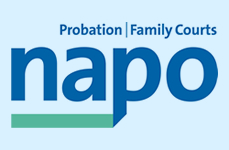This work continues apace. The new qualification arrangements will be known as Community Justice Learning. This perhaps in part reflects the growing realisation that there need to be learning pathways right across the sector enabling many more people to see a route right through to a ‘probation officer’ qualification. A community justice matrix is being developed to reflect these multiple pathways.
The new system will need to make greater use of the accreditation of prior practice learning (APL) but the intention remains to retain Probation as a graduate profession, just with more pathways to qualification.
The other basic assumptions regarding PO qualification training are that:
- the programme will be an integrated programme of applied academic and practice learning;
- practice competence will be tested by means of a work-based vocational qualification;
- professional underpinning knowledge will be provided by higher education institutions (HEIs) working under contract to NOMS.
This review has incorporated a review of the relevant National Occupational Standards (Community Justice). These are the building blocks that link different qualifications. This work has progressed as they need to reflect the changes instituted by the TR Programme. So far, indications are that the NOS remain ‘fit for purpose’.
The size of the required learner cohorts from 2016 is also uncertain. Both the NPS and the CRCs need to undertake workforce planning in order to establish just how many probation officers they will require year on year going forwards.
Linked to this, a survey (using Survey Monkey) will be issued soon - to see how many PSOs there are with VQ3 or Level 5 qualification in the NPS. This survey may be extended to CRCs as well.
A draft specification of what will be required of higher education institutions (HEIs) in terms of the academic content of the new qualification is in preparation.
What is not yet clear is the length of any new qualification pathways. The current (graduate) route is 15 months. As things stand, current Cohort 1, 2 and 3 learners (graduate entrants) should be qualifying any time between January and August 2016. If the new qualification is again set at 15 months , then, with an April 2016 cohort intake, the next batch of learners would not be qualifying until around July 2017.
The current timeline for the development of the new qualification is apparently on target for an April 2016 start but it is recognised that this remains ambitious. The preferred option for the structure of Community Justice Learning is due to be approved by the PQR Project Board this week (27th May).
